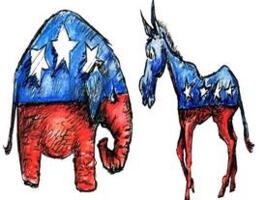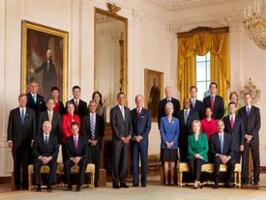47% Think Leaks of Classified Information Will Hurt President’s Campaign
Most voters are concerned about recent leaks of classified security data to the news media, and a plurality believes those leaks will hurt President Obama’s reelection chances.
The latest Rasmussen Reports national telephone survey shows that 73% of Likely U.S. Voters are at least somewhat concerned that the security leaks will compromise national security, with 40% who are Very Concerned. Twenty-five percent (25%) don’t have that concern, but that includes just three percent (3%) who are Not At All Concerned. (To see survey question wording, click here.)
The survey of 1,000 Likely Voters nationwide was conducted on June 11-12, 2012 by Rasmussen Reports. The margin of sampling error is +/- 3 percentage points with a 95% level of confidence. Field work for all Rasmussen Reports surveys is conducted by Pulse Opinion Research, LLC. See methodology.














